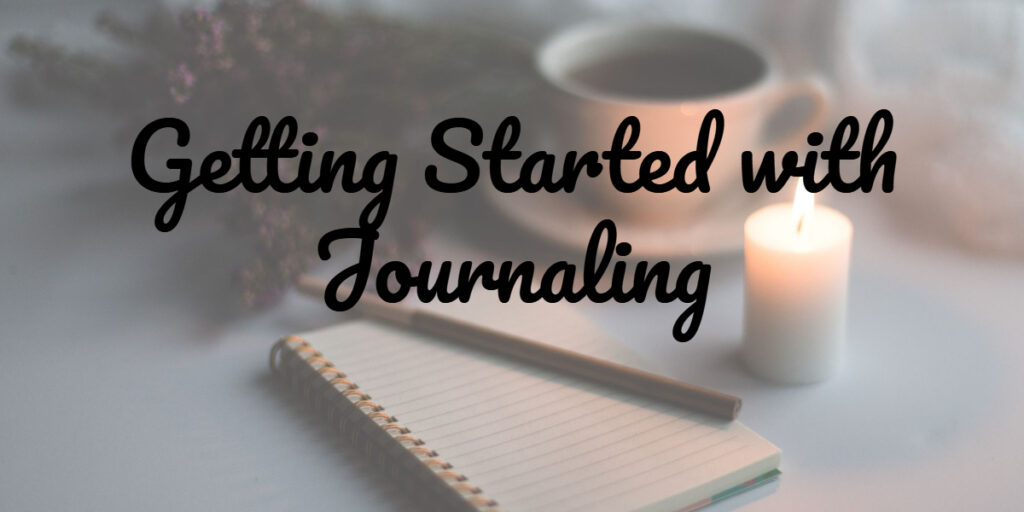I started journaling as a child. I have found it to be a way to clear my mind, to gain clarity, and to release pent-up emotions.
It was through journaling during a period of serious physical pain that I developed my first book “Stitched in Christ” which I later self-published to Amazon. Not all journaling leads to a book. This was just one end-result of my doing so.
Journaling can also serve as a great way to record your life and see how you’ve grown over the years. You might be surprised one, year, three years, ten years from now when you look back on today. I know I am.
It can be scary to get started: What do you write about? What if someone sees it? Should you use a notebook, word processor or something fancy like a leather-bound journal?
These tips can help you get started:
Choose your medium. It really doesn’t matter where you record your life; all have their advantages and disadvantages. Just choose something that works for you.
Notebooks do tend to be a better choice. Many of us spend all day typing away on our computers. Journaling in a notebook gives you a chance to manually write something. It seems more sacred to write with our own hand. Computers can also be distracting; you might sit down to do your journaling and end up surfing the Internet. My personal choice is pen and paper. I find that I more freely process my thoughts than at a computer console. Discover what works best for you.
Penmanship, grammar and spelling are not necessary. The purpose of journaling is to write out your thoughts and feelings. Don’t worry about misspellings or grammar. They are not important here. Just write. Let your mind and feelings flow without concern for the grammar police. Your work will not be graded 😊
Length doesn’t matter. Write for 5 minutes. Write for an hour. It doesn’t matter. What I believe is most important is that you write undistracted.
Set a schedule if you are journaling your life. If you use a notebook, keep it by your bed or the coffee pot; that way you won’t miss it. Set a reminder on your computer. It makes more sense to do it at the end of the day as you reflect on your day, but any time is better than never. Choose a time and stick to it.
Strive to journal daily. Things come up, and it’s easy to miss a day here and there. If you miss more than one day in a row, you might wind up missing five days before you know it. Be consistent. It can be difficult to go back and fill in the blanks at a later date.
If you do forget and skip a couple of days, rely on your records. You can look back at your calendar or planner and your emails to jog your memory about how the days were spent.
Of course, you can write as much as you want. But if you keep it short, you’ll be a lot more likely to do it regularly. Even just a few bullet points can be enough to capture the essence of what happened in your day.
Encourage yourself as you work toward your goals. List the things that are most relevant to you at the time. For example, if you’re trying to lose weight, mention related victories, missteps, and your weight fluctuations. If you’re trying to earn extramoney this month, keep a running tally of your progress.
Keep your journal private and secure. If you believe that someone else might see it, you might be hesitant to be completely open when writing in it. This is one area that computers really shine; with a decent password, it would take the CIA to get into your journal. A simple locked drawer can work well, too.
Before you know it, you’ll have a shelf full of your journal entries. Consider that writing just half of a page each day would be over 3,000 pages in 10 years!
Journaling is a reflection of your life. Personally, I keep my journals for a few years, and some I have kept for only a few hours. I use them most to release pent-up emotions. Sometimes, after writing them out I will shred them. It helps me to feel I am “letting go” of them.
That is me. Many people like to use their journals as a manner of tracking their life and keep them. This is also a good technique. Think about how interesting it would be to read your current entries 10 or even 50 years from now. You might even want to give your journals to your children someday.
Whether to document your life or release your emotions, begin your journal today.

